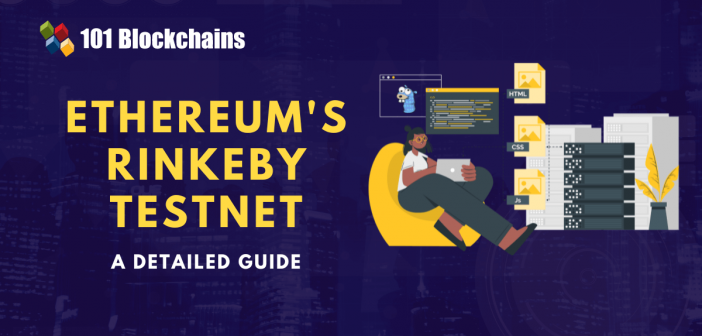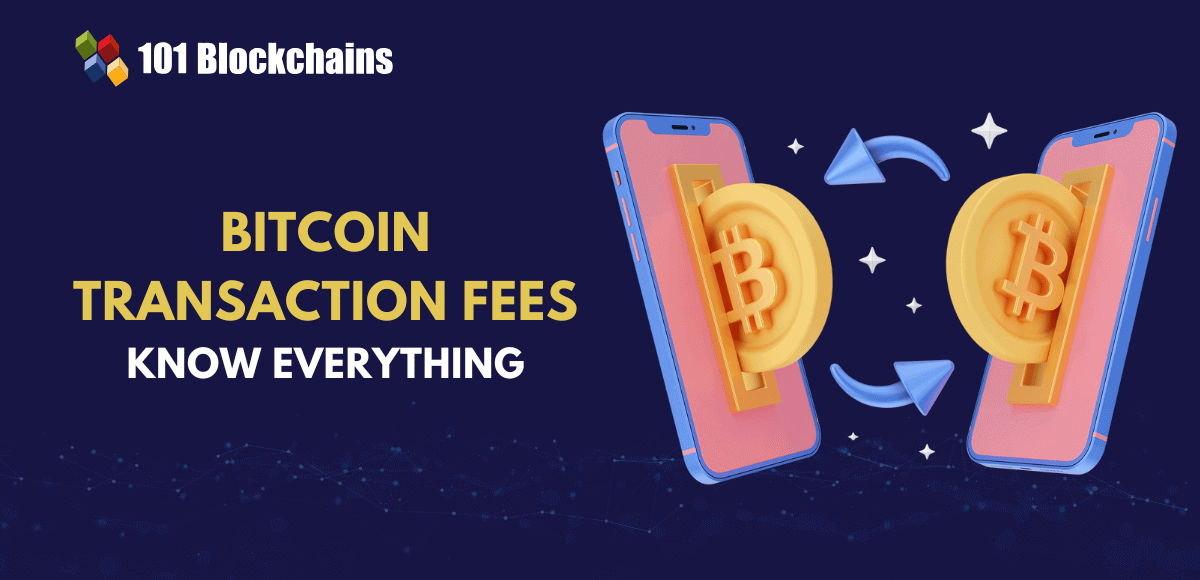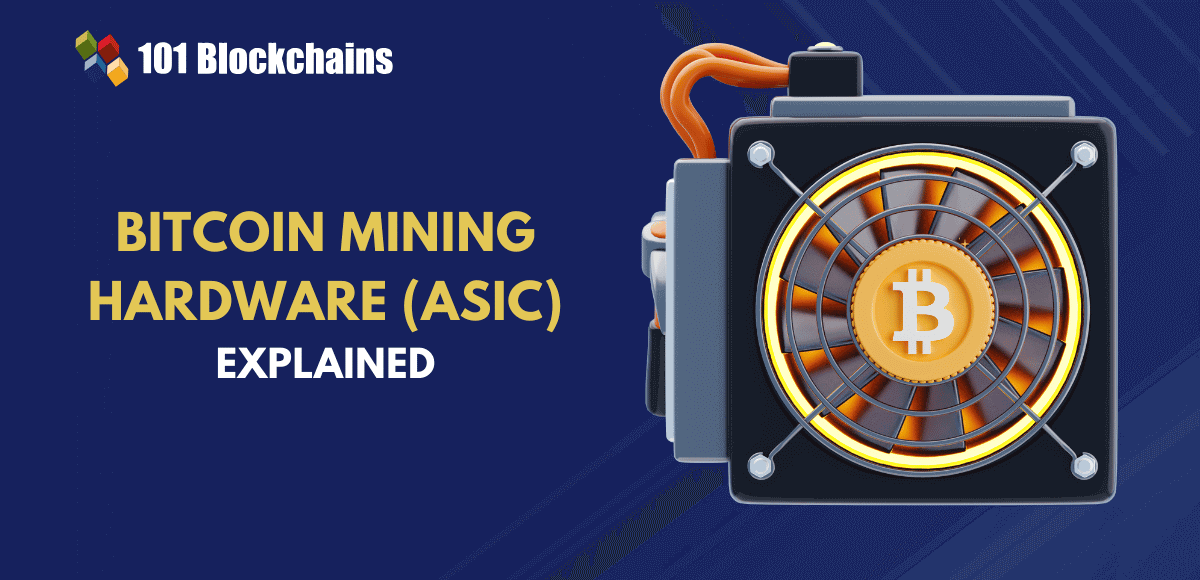Learn how blockchain truly works, master key definitions, and uncover what makes smart contracts so "smart." Dive into the fundamentals, gain valuable insights, and start your blockchain journey today!

Guides
James Howell
on April 05, 2023
Ethereum’s Rinkeby Testnet – A Complete Guide
Ethereum is the world’s top blockchain network for creating decentralized applications. The diverse use cases of Ethereum dApps prove how it has transformed the use cases of blockchain from cryptocurrencies to dApps for different sectors. At the same time, Ethereum is expensive and requires developers to test their applications before deploying them. This is where Ethereum Rinkeby testnet and many other testnets would come into play. The Rinkeby testnet has been one of the popular test networks for Ethereum dApps. However, the Ethereum Foundation has announced that the Rinkeby testnet had been deprecated as it did not transition to Proof of Stake after the Merge. As of now, the Rinkeby testnet is available for read-only purposes and will be laid to rest in the summer of 2023.
What are developers supposed to do in response to the shutdown of an important Ethereum testnet due to the Merge? The recommended course of action suggests migration of contracts from Rinkeby to Goerli test network. However, it is also important to learn about Rinkeby testnet and how it helped in testing Ethereum dApps. The following post offers a detailed guide on Rinkeby testnet for Ethereum and how it works.
Excited to learn the basic and advanced concepts of ethereum technology? Enroll Now in The Complete Ethereum Technology Course
Definition of a Testnet
The first thing on your mind after hearing the term Rinkeby testnet would be the definition of a testnet. Before you learn about the Ethereum testnet Metamask integration, you must know about the definition of a test network. Testnets or test networks are a collection of nodes on the Ethereum blockchain which help in testing new protocols. The testnets help in checking whether decentralized apps and protocols work according to desired functionalities. Testnets help in testing dApps and protocols within a controlled environment offering the advantage of cost-efficiency.
Fundamentals of Rinkeby Testnet
The definition of an Ethereum test network or testnet offers a clear impression of what to expect from Rinkeby testnet. It is a fork from the Ethereum mainnet and includes pre-authorized nodes, which help in avoiding spam attacks alongside improving performance. Developers could use the Rinkeby faucet to obtain free ETH on the testnet for verifying the functionalities of smart contracts without losing access to real financial assets. Interestingly, the free ETH available on Rinkeby testnet is worthless, and you cannot mine ETH in the testnet. Only the authorized nodes could create new blocks, thereby implying that no other nodes could receive mining rewards.
As of now, the Rinkeby testnet offers support for popular node clients, such as Geth, OpenEthereum, Besu and Nethermind. The Ethereum testnet was launched in 2017 by the Ethereum Foundation. It featured a new and modified consensus model known as Proof of Authority consensus. The notable fact regarding the deprecation of Rinkeby testnet points to how its replacement, i.e., Goerli, also follows the Proof of Authority consensus mechanism.
The Proof of Authority consensus mechanism is an improved variant of Proof of Stake or PoS. Rather than associating staking privileges with monetary value, Proof of Authority allocates staking privileges according to validator’s identity. The primary advantages of Proof of Authority include high performance alongside assurance of fault tolerance. Presently, the Geth team maintains the Proof of Authority consensus protocol.
Curious to understand the complete smart contract development lifecycle? Enroll in Smart Contracts Development Course Now!
Important Details about the Rinkeby Testnet
The introduction to Rinkeby testnet would also require an outline of the important details about the network. If you want to use an Ethereum testnet faucet on Rinkeby, then you must know about the expanse of the network. As of now, there are around 11,000,000 blocks on Rinkeby testnet, and it registered around 50 million transactions in 2021.
As of now, Rinkeby testnet has around 46 active nodes with a block time of around 15 seconds. The maximum limit for filling up a block with transactions is almost 41,000, and the block gas limit is around 30 million gas. Gas limit indicates the maximum amount you have to pay for sending a transaction or deploying a smart contract on Ethereum.
The fees for the Ethereum Rinkeby Testnet are determined in the form of gas units. On the other hand, the gas limit provides a definition for the maximum value charged by a transaction or function on users. At a gas price of almost 1000 gwei and an average network hash rate of 0.1h/s, the Rinkeby testnet could offer 100% uptime alongside page latency of 30-80 ms.
Want to learn the basic and advanced concepts of Ethereum? Enroll in our Ethereum Development Fundamentals Course right away!
Advantages and Disadvantages of Rinkeby Testnet
The size of the Rinkeby testnet shows that it is a massive test network and enjoys prominent popularity. What are the prominent reasons why developers preferred Rinkeby over other test networks? The Ethereum testnet Metamask integration becomes easier with Rinkeby, and it offers better centralization in comparison to testnets, such as Ropsten. On top of it, Rinkeby leverages the Proof of Authority consensus to offer better security than Proof of Work testnets, such as Ropsten, which can be spammed.
Another prominent reason for using the Rinkeby testnet is the faster block time. Rinkeby can offer a block time of around 15 seconds, while Ropsten can have a block time of around 30 seconds. Most important of all, the flexibility to use an Ethereum testnet faucet on Rinkeby also encourages developers to choose Rinkeby.
The chain data size for the Rinkeby testnet is only 6GB. Therefore, it does not impose the burden of adding more computing resources for running an Ethereum node for Rinkeby testnet. Furthermore, the reliability of Rinkeby over other testnets is also one of the reasons for the preferences of developers for Rinkeby.
While the advantages of Rinkeby testnet seem appealing, it is also important to look for its setbacks. How could Rinkeby have any setbacks when it serves a massive base of smart contract and dApp testing projects? The foremost disadvantage of the Rinkeby Ethereum testnet is the fact that it will be offline in the summer of 2023. It works on a read-only basis now, as the Ethereum Foundation has deprecated the testnet after the Merge.
Another prominent setback with Rinkeby testnet is evident in the Proof of Authority consensus model, which does not provide an accurate simulation of the production environment. On the contrary, the Ropsten network offers financial incentives to miners for maintaining the test network.
Start learning about second-most-popular blockchain network, Ethereum with World’s first Ethereum Skill Path with quality resources tailored by industry experts Now!
Applications of Rinkeby Testnet
The discussions about Rinkeby testnet also shed light on its possible applications. One of the prominent use cases of the Rinkeby faucet is the facility of free fake ETH for testing applications in controlled environments. Rinkeby testnet could support evaluation of dApp functionality without the financial risks of executing smart contracts. It can help in iterating the application features alongside performing different functionalities of the dApp.
Some of the popular names in the blockchain and web3 space, such as OpenSea, Rarible and Manifold Studios, use Rinkeby testnet. The companies use Rinkeby for deploying NFT marketplaces before finalizing the mainnet deployment. In addition, answers to “How do you get Ethereum on Rinkeby testnet?” would also show how developers could use Rinkeby as an educational resource. Developers could make mistakes, regardless of their years of experience in creating decentralized applications and smart contracts. Testnets help developers in learning from their mistakes alongside honing their expertise to make the mainnet better with effective dApps and smart contracts.
The applications of Rinkeby Ethereum testnet faucet would also include the use cases for testing upgrades on Ethereum protocols. As a result, Rinkeby also served credible prospects for creation of better web3 developer tools. Flexibility for testing new upgrades with Rinkeby also supports the development of new libraries and more comprehensive documentation. All the use cases of Rinkeby testnet showcase how it creates a safe environment for Ethereum developers. Rinkeby helps developers in avoiding the critical concerns of real financial losses for deploying smart contracts.
Build your identity as a certified blockchain expert with 101 Blockchains’ Blockchain Certifications designed to provide enhanced career prospects.
How Can You Obtain ETH on Rinkeby Testnet?
The most common question in an introduction to Rinkeby testnet revolves around obtaining free ETH for testing dApps on Rinkeby. You can find the answer to “How do you get Ethereum on Rinkeby testnet?” by using the testnet faucet. The testnet faucet on Rinkeby is an important resource for developers to request funds and test their applications without any actual financial risks. As a matter of fact, the Rinkeby testnet faucet is one of the most reliable faucets for developers. Here are the simple steps for creating a test account for the faucet on Rinkeby testnet.
Step 1
You can sign up for a free account on Alchemy to obtain more testnet ETH tokens.
Step 2
Now, you would need the Ethereum testnet Metamask connection to obtain the free ETH. Access the Metamask browser extension and select the network name on the top right section of the app.
Step 3
You can find a list of networks and an ‘Add Network’ option in the pop-up window. Click on the ‘Add Network’ option to include Rinkeby testnet.
Step 4
Developers could find the Rinkeby test network option as a default network on Metamask. Upon signing up for a free account on Alchemy, you would receive a new RPC URL after developing a new app on Rinkeby testnet. As a result, you can have more features and functionalities through Alchemy, serving as the new RPC URL node provider. You have to enter the test network details such as network name, new RPC URL, currency symbol, block explorer URL and chain ID.
Step 5
In the final step, you can use the Rinkeby faucet to request funds. You can request funds by entering your wallet address and selecting the “Send Me ETH” option.
The simple process for obtaining ETH on the Rinkeby testnet by using the testnet faucet encourages developers to choose Rinkeby testnet. Developers could obtain testnet ETH tokens in their Metamask wallet for testing different protocols and decentralized apps.
Curious to know how to build your expertise in Ethereum technology? Check the detailed guide Now on How To Advance Your Ethereum Skills?
Methods for Sending Testnet ETH on Rinkeby
Another significant highlight in a guide to Rinkeby testnet is the outline of methods for sending testnet ETH on Rinkeby. How can you use the fake ETH on Rinkeby testnet? Interestingly, the process for sending Ethereum Rinkeby testnet ETH works in the same way as for the Ethereum mainnet. After connecting to the Rinkeby testnet and obtaining testnet ETH, you can use the following steps for sending testnet ETH on Rinkeby.
Step 1
Access your Ethereum testnet Metamask wallet and open the test account where you have the testnet ETH. Click on the “Send” button in the Metamask wallet. Before you click on the “Send” button, make sure that you have connected to the Rinkeby test network on Metamask. Upon selecting the “Send” button, you can transfer the testnet ETH tokens to another Rinkeby testnet account.
Step 2
Enter the address of the wallet which would receive the testnet ETH and click on “Next” button.
Step 3
In the final step, you have to review the details of the transaction and click on “Confirm” button to finalize the transaction. It is important to remember that you would still come across gas fees, although without any real value.
Get familiar with the terms related to ethereum with Ethereum Flashcards
Most Popular Rinkeby Testnet Tools
The effectiveness of Rinkeby testnet is more than just offering free testnet ETH upon request for testing decentralized apps and protocols. Questions like “How do you get Ethereum on Rinkeby testnet?” show only a part of Rinkeby testnet. Apart from testing, Rinkeby test network supports popular blockchain developer tools. As a result, developers can leverage modern web3 tech stack for dApp development on Rinkeby testnet. The extensive array of developer tools available on Rinkeby testnet improves its significance for blockchain developers.
Rinkeby testnet offers support for popular web3 libraries such as web3.js and ethers.js alongside web3 development environments such as Truffle, Brownie and Hardhat. The Rinkeby Ethereum testnet support web3.js and ethers.js libraries, which include native support for remote procedural calls to blockchain nodes. Therefore, Rinkeby could facilitate advantages of seamless integration in the web3 tech stack of a developer. In addition, developers could have better flexibility for reading and writing data into the blockchain.
Another prominent highlight of Rinkeby testnet is the support for web3 development environments. Truffle, Brownie and Hardhat provide comprehensive web3 developer environments for compilation, testing, deployment and debugging of Ethereum dApps and testnets. The flexibility for working with Rinkeby Ethereum testnet faucet in web3 development environments provides better efficiency for developers. On top of it, web3 development tools also offer more opportunities for creating personalized local blockchain developer environments.
The introduction to Rinkeby testnet would remain incomplete without referring to the block explorer on the testnet. It can help in checking out the details of the testnet in a readable format. You should also remember that third-party sites could also offer free testnet ETH on Rinkeby network. For example, the Rinkeby Ether Faucet is a third-party service that helps in obtaining free ETH in a few simple steps.
Conclusion
The detailed guide on Ethereum Rinkeby Testnet provided a clear glimpse of how Rinkeby served the blockchain and web3 community. Developers used the testnet for faster block time and access to web3 developer tooling. The simple process of obtaining free testnet ETH could offer clear insights into how Rinkeby streamlines the dApp and smart contract testing process.
You can follow a few simple steps for registering Rinkeby Ethereum testnet Metamask wallet and use them for testing smart contracts. Rinkeby testnet does not impose the challenges of financial risks for deploying and testing smart contracts. In addition, a dedicated environment for developing and testing dApps also provides a comprehensive advantage for web3 development. Learn more about the applications of Rinkeby testnet with practical documentation right now.






